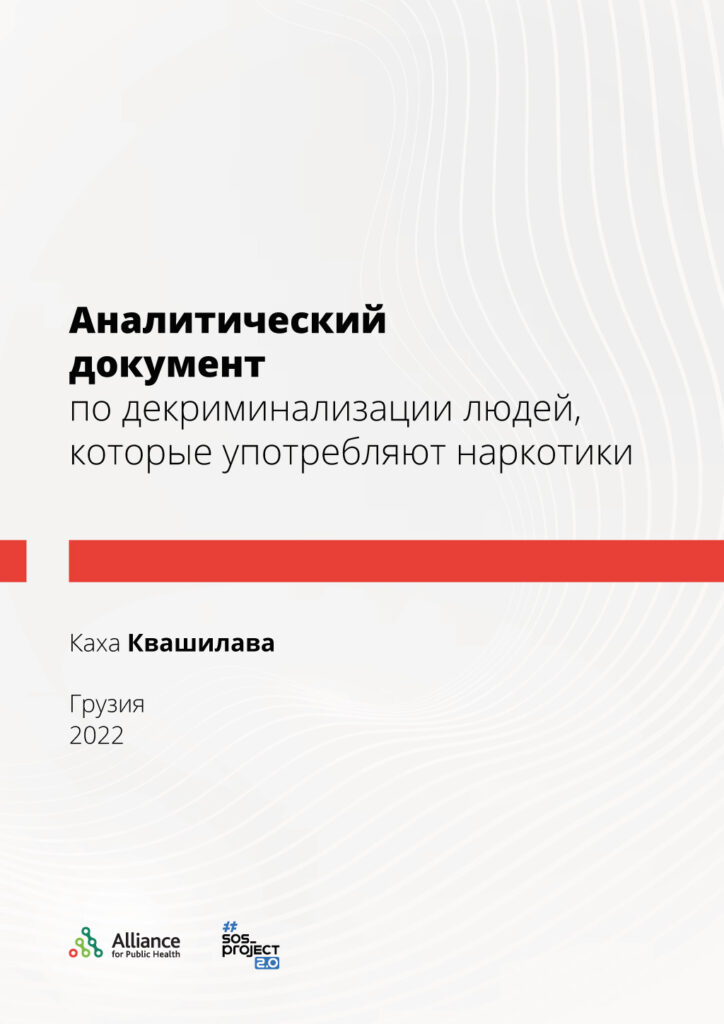A policy brief on decriminalization of people who use drugs in Georgia is now available online.
“The purpose of this policy brief is to provide information on barriers and challenges related to the criminalization of people who use drugs in Georgia and to prepare recommendations on decriminalization of drug use for further use by representatives of local communities and NGOs for advocacy purposes,” says its author Kakha Kvashilava.
Drug policy and drug legislation have been and remain a challenge for the Georgian state in recent decades. The current situation shows that repressive drug policy is not promising and instead of reducing harm, it puts people who use drugs in an even more ruthless and inhumane environment. The state punishes drug users extremely harshly instead of fighting the drug business.
Georgia’s laws governing drug offenses are among the strictest in the world. A person who uses drugs is prosecuted and punished administratively and criminally up to imprisonment. Democratic states are focused on prevention, harm reduction approaches, improving the quality of life of people who use drugs, where state resources are spent on caring for citizens. Society demands a humane state that does not use repressive measures such as intimidating citizens, planting drugs or compromising law enforcement.
Only with the right public policies will the government be obliged to devote resources to prevention, to raising awareness, to caring for users rather than isolating and punishing them.
“Criminalization of drug use and the perception of drug use as anti-social behavior, creates a discriminatory environment for people who use drugs,” emphasizes the author of the document, “Drug addiction is a ground for deprivation of civil rights, moreover, according to the Civil Code of Georgia, drug addiction is a ground for deprivation of parental rights and responsibilities. Applying such laws to people who use drugs violates the principle of equality and increases stigmatization. Although any kind of discrimination is prohibited by the country’s legislation, the restrictions and prohibitions presented in a number of legislative acts against drug users make them victims of discrimination”.
The publication was prepared within the framework of the Regional Project “Sustainability of Services for Key Populations in the Eastern Europe and Central Asia Region” (SoS_project 2.0), which is implemented by a consortium of organizations led by the Alliance of Public Health, with financial support from the Global Fund.




